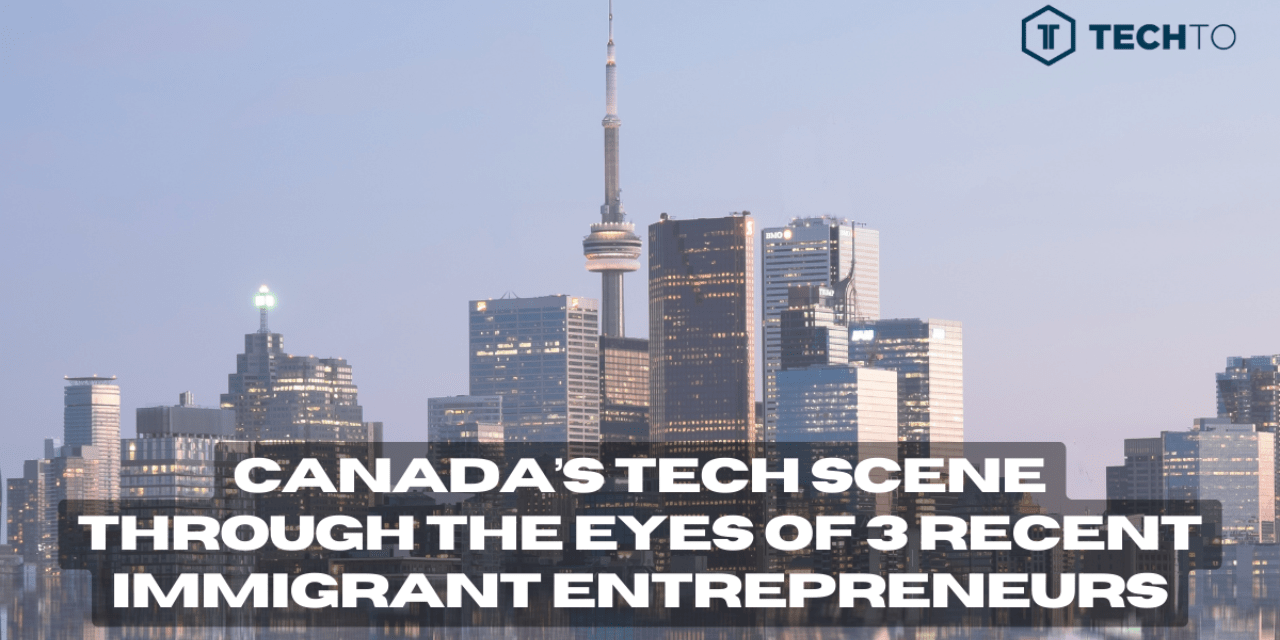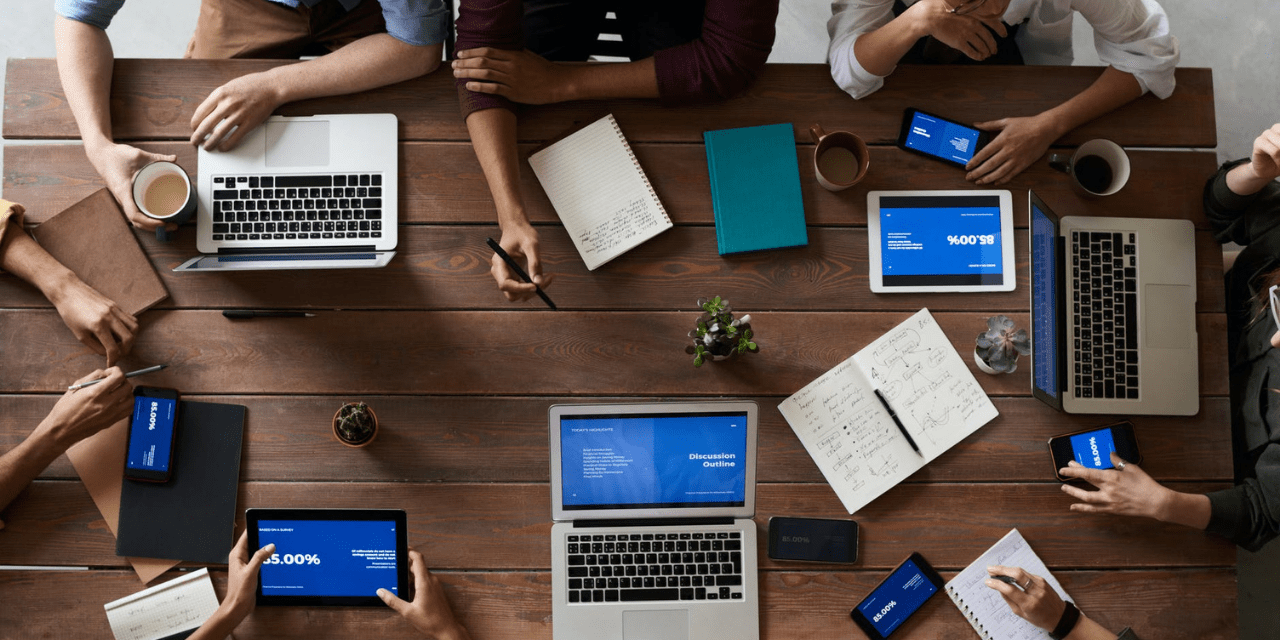As a company that has streamlined the way healthcare professionals handle and utilize medical data, Verto’s projects are full steam ahead during the current COVID-19 pandemic. But the company is also intent on maintaining its culture and supporting its team members through the current global crisis, and so its daily stand up now includes something new: a game.
“Michael [Millar, CEO] decided to introduce a different (but simple) game every morning to make sure we’re all awake during our stand-up. We also dress up (or down) for the meeting and share good news at the end. We find that it keeps us engaged, laughing and energized,” said Mahmoud Halat, a Product Manager at the company. “We have a video room running 24/7 for people to jump on and meet in for quick questions without having to formally book something. It also acts as a nice social backdrop for those that don’t have meetings during the day and want to listen in on what’s happening.”
The team also has virtual lunches for those who’d like to drop in, a shared Spotify playlist with good and guilty pleasure work tunes, as well as gaming sessions after the day has wrapped, including a large-scale World of Warcraft campaign a few are gearing up for.
As the global response to the COVID-19 pandemic continues to develop, OneEleven member companies, like many others, have transitioned to remote work to help flatten the curve and social spread of the virus. But this physical distance has created new challenges when it comes to team connectivity, socially and professionally, as work-life balances have turned entirely remote.
John Laban, CEO and Founder of OneEleven company, OpsLevel, said that his team has always made it a point to eat lunch together, “It was a great way to all kind of mix together every day, chatting about life, what we’re working on — even when you’re not directly working with that given person that day. Now that we’re working from home, we find that some people might go days without seeing most everyone else.”
OpsLevel is a company of eight. With such a small, core team, the disruption of not seeing one another day-to-day might be all the more affecting. For that reason, Laban wanted to safeguard that time together, “We’re going to try out some strategies to try to maintain that sense of camaraderie at lunch… We’re going to set up a discord server so people can drop in over a part of their lunch break (if they feel like it) and play games together. We’ll start with some jackbox games that we play together, and go from there.”
It’s this sense of fluidity in crisis that has felt the most impactful for teams of every size. Setting up strict, work from home procedures are not necessarily the most helpful when the situation itself is changing every day.
“With the current COVID-19 situation, people know there is a light at the end of the tunnel, we just don’t know how long it will take.” Lloyed Lobo, Cofounder of Boast.AI said, “Everyone is going to be affected directly or indirectly.”
With 32 employees stretched across Toronto, Vancouver, Calgary, San Francisco and Romania, Boast.AI has long leaned on remote solutions. Along with long term planning like assessing immediate effects on his company and translating it to the “ability to run the business for the next 12 months”, Lobo also stressed looking internally for problem-solving.
“Save money, stretch every dollar. Learn to do things by yourself that you would otherwise outsource, do more with less. Difficulty leads to creativity. It’s a great time for the team to learn new skills. Plus, being occupied helps you stay away from negative thoughts.”
A big part of staying positive and maintaining a healthy work culture, especially in times of high public stress, comes down to focusing on community. On people.
“Treat relationships like gold,” Lobo said. “Do right by your people: colleagues, clients, and communities. It’s paramount that they feel comfortable. Host virtual team building activities. People feel better when they are doing things, plus it creates a sense of connection, so schedule things for them to do.” The Boast.AI team even schedules virtual murder mysteries, which Lobo says have been a huge hit.
Maintaining culture, strengthening a sense of community, while keeping it light is a balance the internal programming team at OneEleven has been adept at managing. Handling, on average, 25 events per month and 300 per year, the shift to working remotely with the onset of COVID-19 put many scheduled events on hiatus, with future programming in the space, at least physically, on pause. But it’s a challenge Omer Ismael, Programming Lead and Aisha Paul, Events Lead, have stepped up creatively to meet.
“With the majority of our community working from home, we are working to provide skills building, community building and wellness programming that our members can also engage with from the comfort of their own home.” Ismael said, of programming problem-solving in the interim, “Whether that means providing them with online yoga and pilates classes, facilitating our peer groups virtually, or working with Toronto based DJ’s to curate Spotify playlists so that our members can work from home comfortably.”
On the professional level, the OneEleven programming team is still providing support for its communities. Pivoting to remote options for peer group meetings, exploring the possibilities of taking its quarterly community lunch digital, and coming up with creative solutions for facilitated workshops and classes that would also go remote. OneEleven has also made consistent communication about its policies and procedures during COVID-19 a priority, setting up a community-facing FreshDesk portal with its COVID response plan, resources from other tech hubs, FAQs and guides to accessing emergency funding, and a growing online library of news and medical articles.
OneEleven partners are also offering resources with practical strategies to assist companies transitioning to remote work. Deloitte’s report, “Practical Workforce Strategies That Put Your People First”, includes findings the company utilized during past global crises, like SARS. The report acts as a potential guide for other companies to follow, offering a tangible approach to periods of uncertainty by framing action into three main points of focus: the work, the workforce and the workplace.
The OneEleven team, too, has transitioned to work from home. Daily morning stand up meetings give every person on the team a chance to outline what they plan to work on that day, while coffee and lunch breaks have been scheduled as no-pressure options of downtime to talk about news or nothing more than decor items in colleague’s homes. To end the first full week of going remote, the team took part in a challenge to put together the best outfit for their weekly Friday end of day drinks — now via Hangouts — judged by OneEleven’s Executive Director, Siri Agrell’s kids. A full-on costume contest resulted, ranging from straight up Halloween ensembles to gala attire for the prize of dinner, delivered.
“We’re all navigating this together and technology plays a major role in how we can support our teams, our loved ones and global health in this unprecedented time,” said Agrell. “We’re focused on supporting our members to ensure their on-going success, and that means increased attention to sharing best practices and information and keeping my own team healthy and engaged.”
Working Together While Staying Apart
March 24, 2020

Sign up to The Upskiller.
OneEleven is home to Toronto’s most promising technology companies. Stay up to date on who’s joining, who’s raising, who’s making moves and everything that matters in a city and sector that’s built to scale.
Sign up for our newsletter
2023 COPYRIGHT AND TRADEMARK. ONEELEVEN IS AN INITIATIVE LED BY THE ONTARIO CENTRE OF INNOVATION. SUBSIDIARIES AND AFFILIATES. ALL INTELLECTUAL PROPERTY RIGHTS RESERVED.


